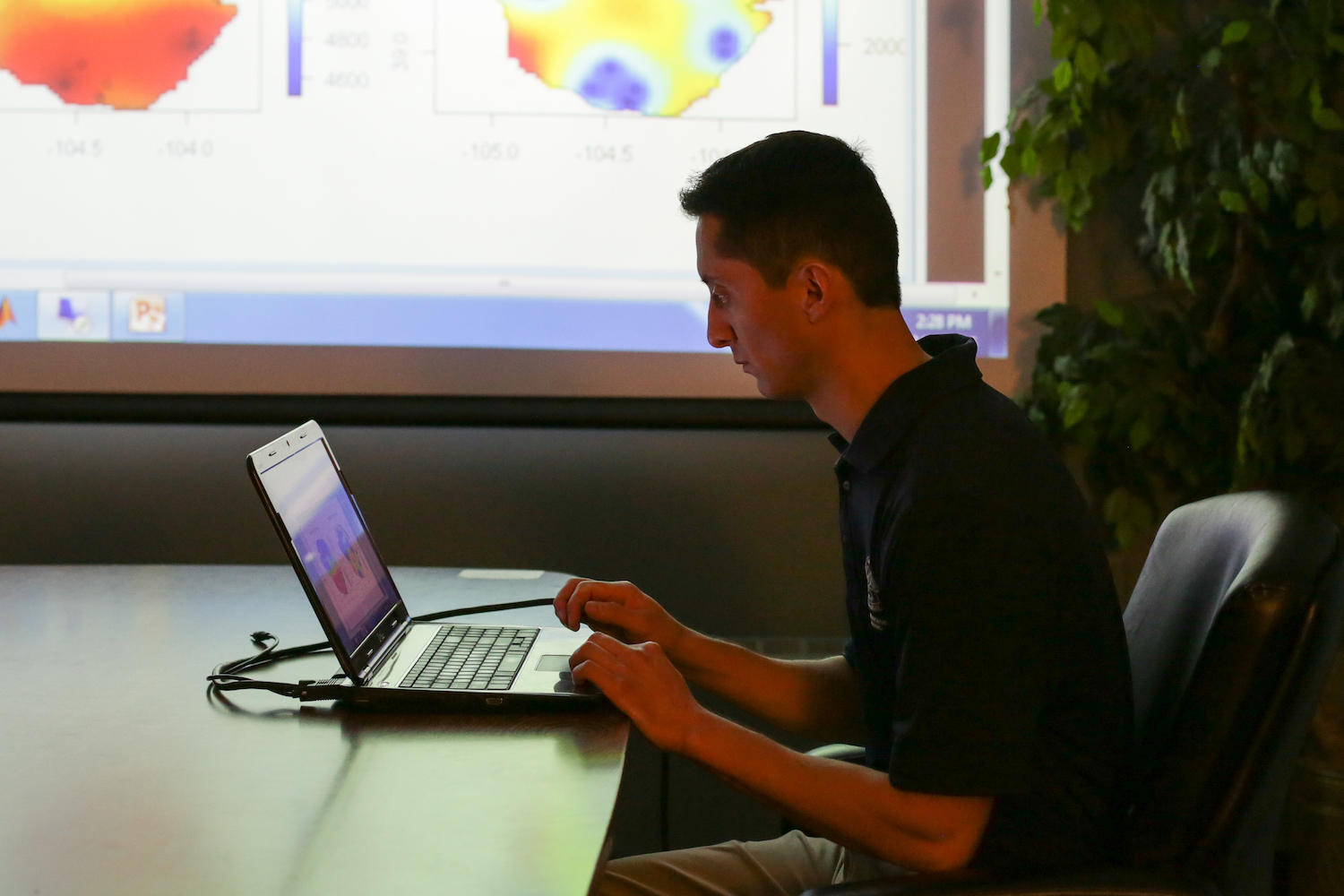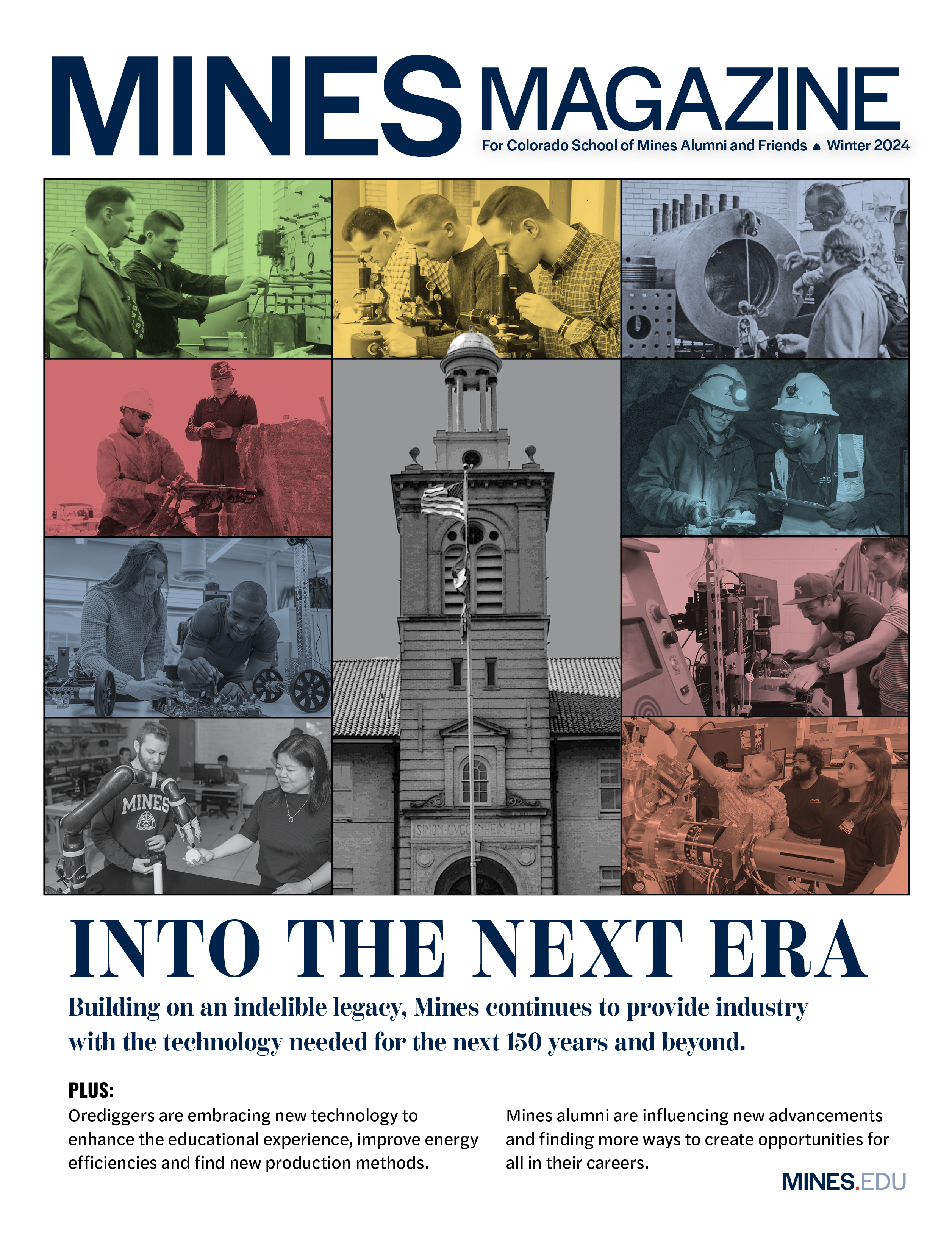New methods, same rigor

Over the past century and a half, even as Mines has built a reputation for stellar science and engineering research, the university has always placed great importance on preparing its students for successful careers in industry.
That focus continues to this day, as Mines adapts to an ever-evolving social and employment landscape by expanding its postgraduate offerings, taking advantage of the latest technology and shaping programs to make them more flexible and “stackable.”
Until 1966, the university had offered its students professional degrees, which required 170 credit hours of coursework. While the programs provided a high-quality education, by then, few of the companies that hired Mines graduates distinguished between those and bachelor of science programs, which required as few as 130 credit hours at other institutions. Ultimately, Mines decided to offer bachelor’s degrees while awarding the professional degree as a second, graduate degree for those who put in the additional work.
Today, Mines’ commitment to improving its students’ career prospects is reflected in the university’s growing catalog
of postgraduate offerings, said John Bradford, professor of geophysics and vice president for global initiatives.
For example, in addition to the traditional 30-credit master’s programs that require 6 to 12 credit hours of research, more departments are offering non-thesis master’s programs to give students—often working professionals—more opportunities to gain advanced training or an additional skill set. “It is really difficult to complete a research-based degree,” Bradford said. “It requires large blocks of time, whereas coursework can be split into smaller chunks. It doesn’t necessarily take less time, but it’s more flexible.”
Mines is also offering more graduate certificate programs, many of which can be completed partly or fully online. “It’s the same target audience—people who are working, bachelor’s degree holders looking to build their skill set with less time commitment,” Bradford said. “It’s more viable for people who are busy or starting a family.”
Plus, some of these certificates can be “stacked.” Mines’ graduate certificate in project management, for example, it built to be combined with two others in the works—business analytics and entrepreneurship—and just one additional course to complete a master’s degree from the Division of Economics and Business.
Expanding non-degree offerings—short courses or boot camps that run for a week or less—is another focus for the university, Bradford said, creating a continuum of educational offerings in response to rising demand.
“All of these programs that we’re working on, whether online or in person, we’re making sure everyone still gets the Mines experience,” Bradford said. “They will be rigorous, hone students’ ability to do hard work, as well as gain a practical understanding of how things need to work in the real world.”





